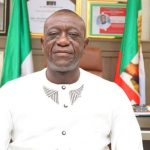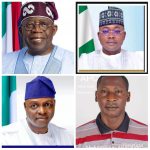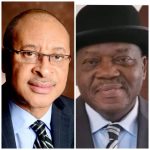The Timeless Beauty of Grassroots Politicking That Always Wins
By Abdul Mohammed Lawal
Grassroots politicking is the purest form of political engagement. It is where real connections are made, and where leaders and citizens meet without barriers. Unlike high-level politics, which often feels distant and complicated, grassroots politics happens in the streets, the markets, the town halls, and even under the shade of trees in local communities.
In a country like Nigeria, where the political scene is often filled with noise from the top, it is easy to forget that true power lies with the people. The grassroots is where ideas are tested, feedback is honest, and leadership is most felt. It is the foundation of our democracy, and without it, everything else falls apart.
Just yesterday, I had a beautiful experience in Okene Local Government Area, and today, it was Ogori-Magongo. These experiences reminded me of how beautiful and powerful grassroots politicking can be. It opened my eyes again to the sincere connection between some leaders and the people because they choose to do politics the right way; from the bottom up. These visits took me back in time, back to when I was involved with opposition political platforms. That was the last time I felt this much joy, acceptance, and openness from the people.
At the grassroots level, people are not shy to speak. They express their problems in the simplest ways, and it is often surprising how accurate and deep their observations are. During those visits, I saw how community members were freely engaging their leaders, and how these leaders were genuinely listening and responding. It was not about big speeches or promises, it was about real conversations.
It reminded me of why I fell in love with politics in the first place. There’s something powerful about being seen and heard at that level. Sadly, many people in leadership today, both politicians and technocrats, have grown lazy when it comes to staying close to the grassroots. Some only visit local communities during election periods, acting friendly and available just to win votes. But once the elections are over, they disappear again and start sending representatives.
This kind of behaviour has weakened our electoral culture. It sends the wrong message, that the people only matter when their votes are needed. Many leaders treat those in rural areas with pride and high-handedness, forgetting that real leadership is about presence, not just power.
Grassroots politicking is not just about winning elections. It’s about building trust, relationships, and true service. It is where politics feels less like a performance and more like service. When leaders stop listening to the people, they lose touch with reality. But the people notice. They know who is sincere and who only comes around with a convoy and cameras.
Let’s take a look at Kogi State. When power shifted to Kogi Central Senatorial District during the first eight years of the APC-led government, many people expected stronger connections between leaders and the grassroots. But what happened was quite different.
There were rumours that many top office holders rarely visited their hometowns unless it was sanctioned by His Excellency, Alhaji Yahaya Bello, CON. It was said that they only came around when there was a big political event, and even then, most of them stayed in hotels in Okene instead of going to their actual communities to meet their people. This raised a serious question; how can you truly represent people you hardly see? Why send others to do what you can do better yourself? Politics starts and ends with the people, and there is no shortcut to that.
But there was one exception; His Excellency, Alhaji Ahmed Usman Ododo. As outsiders, we heard stories of how he was always home with his people at any given opportunity, long before he became governor. While others focused on social media and public image, he was on the ground, listening, sharing, and building strong community ties.
Some even laughed at him, calling him a “village man of influence.” But they missed the point, because there is a common saying in politics: “All politics is local.” It means that no matter how high someone rises, their strength always comes from the people at the grassroots. And when the APC gave him the flag for the 2023 governorship race, it became clear that his connection to the people was his biggest strength.
This is why the story of Alhaji Ahmed Usman Ododo stands out. He was not the loudest speaker, nor the best at using fine words. He was not seen as someone being groomed to become governor. But what he had was something many others lacked; true connection with his people. Are you surprised that he preferred to be called Chief Servant of Kogi State instead of Executive Governor. That alone says a lot. It shows a different mindset of someone focused on service, not title.
The beauty of it all is that since becoming governor, he has grown into the role without noise. He listens. He works. And he welcomes criticism, seeing it as a way to improve. This kind of leadership is rare, and it proves that being close to the grassroots is not a weakness, it’s a badge of honour. The same people who once mocked him now see the results of his approach.
Earlier this month, I had decided to step away from politics and political writing in Kogi State. But something changed. One kind-hearted person helped me see a part of leadership I had forgotten; a side full of courage and true connection with the people. In the last few days, I have met some remarkable individuals who are not politicians yet, but they are more “grassroots” than many career politicians I’ve known. They don’t wear political titles, but their actions speak louder than positions ever could.
They are the real soldiers of democracy, working quietly, sincerely, and with the people at heart. It’s refreshing to know that such people still exist in the leadership space today. And if you think that the current governor or even his predecessor would take such individuals for granted, then you may not fully understand how powerful their presence is.
These individuals are trusted by their principals, not because they flatter anyone, but because they stay true to the people. They might face challenges from those who want politics to remain “business as usual,” but they keep going. Propaganda may be used against them, but their work will always speak for them. And the most amazing part of it all is that, most of these individuals don’t like being in the spotlight.
Any system that truly wants to succeed must protect and empower such people. They are the ones who carry the spirit of the community and help leaders stay grounded.
Why choose not to cherish the light of who is doing it right and let it inspire you, when we can all get it right?
Grassroots politicking is not just a style, it is the soul of true democracy. I will always be a proud grassrooter. And whenever I meet others who carry that same spirit, whether or not they are in my political party, I will celebrate them. These are the people we must protect and support, because they remind us of what leadership should truly be. It’s even more beautiful when they are technocrats.
Thank you, Hajiya Habiba Tijjani Onumoko, Ph.D., for the wonderful experience.
As we move forward, may more leaders learn to return to the grassroots, not just during elections, but every day. That is where the real work begins, and that is where lasting change is made.










